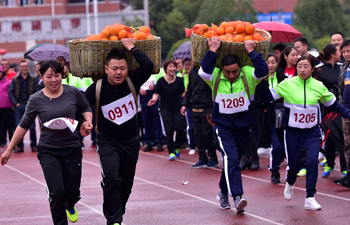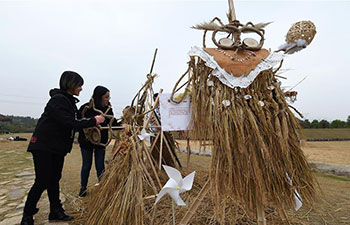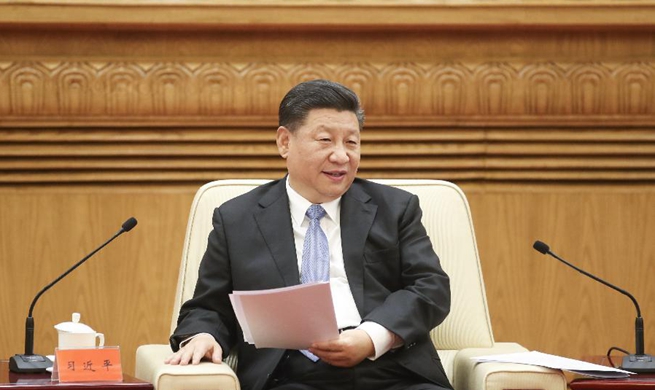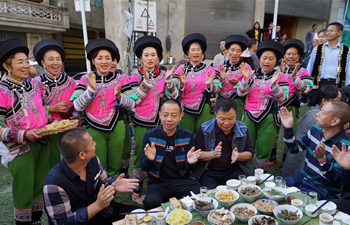KIGALI, Nov. 12 (Xinhua) -- The number of women, adolescent girls in the world's 69 lowest-income countries using modern contraception has recorded a significant increase, said a report by UN-backed advocacy group Family Planning 2020 (FP2020) released on Monday.
The report, released during the 5th edition of the International Conference on Family Planning in the Rwandan capital Kigali, indicated significant progress in efforts to involve women and adolescent girls in family planning, especially in the world's poorest countries.
As of July 2018, the total number of women and girls using a modern method of contraception in the world's 69 lowest-income countries had grown to more than 317 million, said Beth Schlachter, executive director of FP2020, at the launch of the report.
This is 46 million more users than that in 2012, the FP2020 was launched, said Schlachter, adding that contraceptive use is growing fastest in Africa even though the region's fertility rates remain high.
"For poor families to feed themselves and recover from poverty, women and girls must be able to decide how many children they want to have," she said.
According to the report, access to modern contraception helped prevent 119 million unintended pregnancies, 20 million unsafe abortions and 137,000 maternal deaths from July 2017 to July 2018.
Women need full information about different contraceptive options and their possible side effects in order to make an informed choice about the method that best suits their needs, said the report.
FP2020 is a global partnership established in support of the UN Secretary-General's Global Strategy for Women's, Children's and Adolescents' Health to empower women and girls by investing in rights-based family planning.
The International Conference on Family Planning that runs from Monday to Thursday brings together more than 3,700 delegates including health experts, government officials, UN officials, philanthropists, youth, representatives from civil society organizations and media, among others, from across the globe.
At the opening of the conference, Rwandan First Lady Jeannette Kagame told participants to continue to advocate for universal access to quality sexual and reproductive health services to enable communities to enjoy the right to plan their families according to their wishes.













